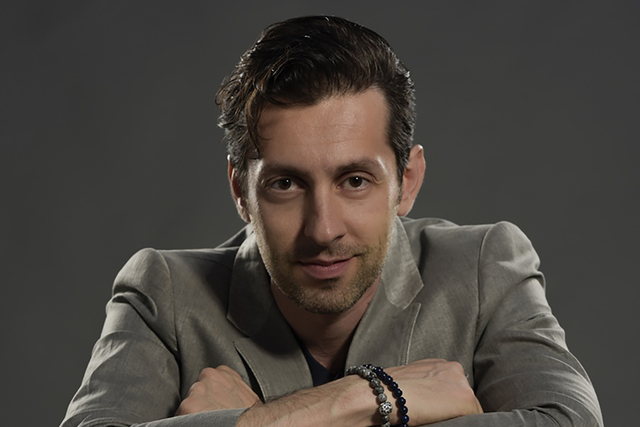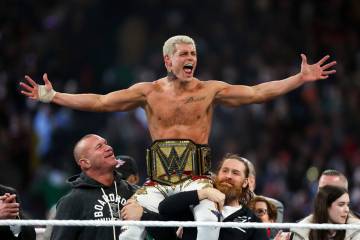Max Amini feels at home wherever stand-up takes him
Dubai on Wednesday, Dallas on Sunday. What’s the difference for comedian Max Amini?
In Dallas — or any other U.S. city — Amini doesn’t have to worry about other stand-up comics stealing old but very individual routines still floating around on YouTube: “Persian Girls” or “Iranian Moms and Tomato Juice.”
Born in Tucson, Arizona, to Iranian parents, Amini can speak Farsi. So he is equally at home in the Tropicana’s Laugh Factory club, where he headlined in June, or on the massive stage of the new Park Theater, where Amini opens for Persian pop stars Mansour and Arash on Sunday.
But in Dubai, Tucson is the exotic place.
“When I go to a country like that, then I truly realize how American I am in comparison to anyone there,” Amini says. “I just go there and talk about how I see their country from my perspective, which is completely American at that point.”
Las Vegas casinos have made a Christmas tradition of hosting Asian and Persian stars for niche audiences. This year brings Hong Kong-based pop singer Vivian Chow to the Hard Rock Hotel on Sunday, and socially minded Iranian-born singer Ebi to the Colosseum at Caesars Palace on Saturday.
The Iranian revolution forced Ebi to move to Los Angeles in the late 1970s, and Amini predicts that weekenders from L.A.’s Iranian-American community will account for about half of Sunday’s audience.
Amini, 35, has been doing stand-up since he tested the waters as a UCLA theater student in 2002. “I tend to comfortably relate to a lot of nationalities, and I play a lot of ethnic shows,” he says. “In the end, we’re all human. We share so much in common, there’s plenty of topics to talk about.”
In the Middle East, he adds, stand-up is “a newer art form and it’s growing rapidly. It’s getting better and better, which is really awesome.” But because it’s a young format and “every country has its own rules and regulations, stand-up comedy is a little more challenging,” he says. “You can’t really talk about politics or strong sexual topics. It forces a comedian to get creative and dig into other types of material.”
The older routines you see on YouTube defined Amini, but these days, “I don’t talk about being Persian so much,” he says. “The older I’m getting, I like to talk about things that are more personal and not ethnic-driven.
“A lot of material I talk about right now, it’s mostly about relationships or my experiences around the world. I talk about French people, I talk about Germans. It’s very universal.”
Still, Amini’s bicultural background gets the largely apolitical comedian invited to some serious places where you don’t typically find a Laugh Factory headliner.
The Dubai visit was part of the Arab Social Media Influencers Summit. Earlier this month, he was part of a UCLA-affiliated panel asking “Has Political Correctness Really Killed Humor?”
And in November, he was the closer of a Cal State-Northridge panel, “Striving for Human Rights in Iran.”
“It was such an intense conversation all night, and they threw me on at the end,” he says. He joked that it was “absolutely inhumane.”
“Comedians do get these invites because comics have very specific answers,” he notes. “I believe what makes them unique is that they don’t have a gray area. It’s black or white.
“If I go to these events, I try to really resonate certain ideas that could help a younger generation, or help someone who is in a dark place to hear something to lighten up. We all have a lot of experience and I talk from my perspective, and that’s what they’re interested to hear.
“If they care about what I think, then that’s fair enough. It doesn’t mean I’m an expert. It means, ‘What does he have to say?’
“And if what I have to say resonates, then fabulous.”
Read more from Mike Weatherford at reviewjournal.com. Contact him at mweatherford@reviewjournal.com and follow @Mikeweatherford on Twitter.
Preview
Who: Mansour and Arash with Max Amini
When: 8 p.m. Sunday
Where: The Park Theater at Monte Carlo, 3770 Las Vegas Blvd. South
Tickets: $59-$180 (800-745-3000)




























